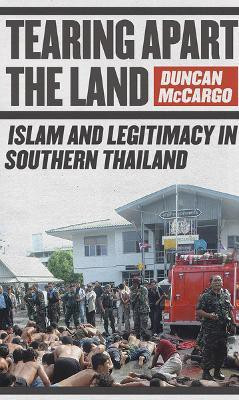Tearing Apart the Land(English, Electronic book text, McCargo Duncan)
Quick Overview
Product Price Comparison
Since January 2004, a violent separatist insurgency has raged in southern Thailand, resulting in more than three thousand deaths. Though largely unnoticed outside Southeast Asia, the rebellion in Pattani and neighboring provinces and the Thai government's harsh crackdown have resulted in a full-scale crisis. Tearing Apart the Land by Duncan McCargo, one of the world's leading scholars of contemporary Thai politics, is the first fieldwork-based book about this conflict. Drawing on his extensive knowledge of the region, hundreds of interviews conducted during a year's research in the troubled area, and unpublished Thai- language sources that range from anonymous leaflets to confessions extracted by Thai security forces, McCargo locates the roots of the conflict in the context of the troubled power relations between Bangkok and the Muslim-majority "deep South." McCargo describes how Bangkok tried to establish legitimacy by co-opting local religious and political elites. This successful strategy was upset when Thaksin Shinawatra became prime minister in 2001 and set out to reorganize power in the region. Before Thaksin was overthrown in a 2006 military coup, his repressive policies had exposed the precariousness of the Bangkok government's influence. A rejuvenated militant movement had emerged, invoking Islamic rhetoric to challenge the authority of local leaders obedient to Bangkok. For readers interested in contemporary Southeast Asia, insurgency and counterinsurgency, Islam, politics, and questions of political violence, Tearing Apart the Land is a powerful account of the changing nature of Islam on the Malay peninsula, the legitimacy of the central Thai government and the failures of its security policy, the composition of the militant movement, and the conflict's disastrous impact on daily life in the deep South. Carefully distinguishing the uprising in southern Thailand from other Muslim rebellions, McCargo suggests that the conflict can be ended only if a more participatory mode of governance is adopted in the region.


